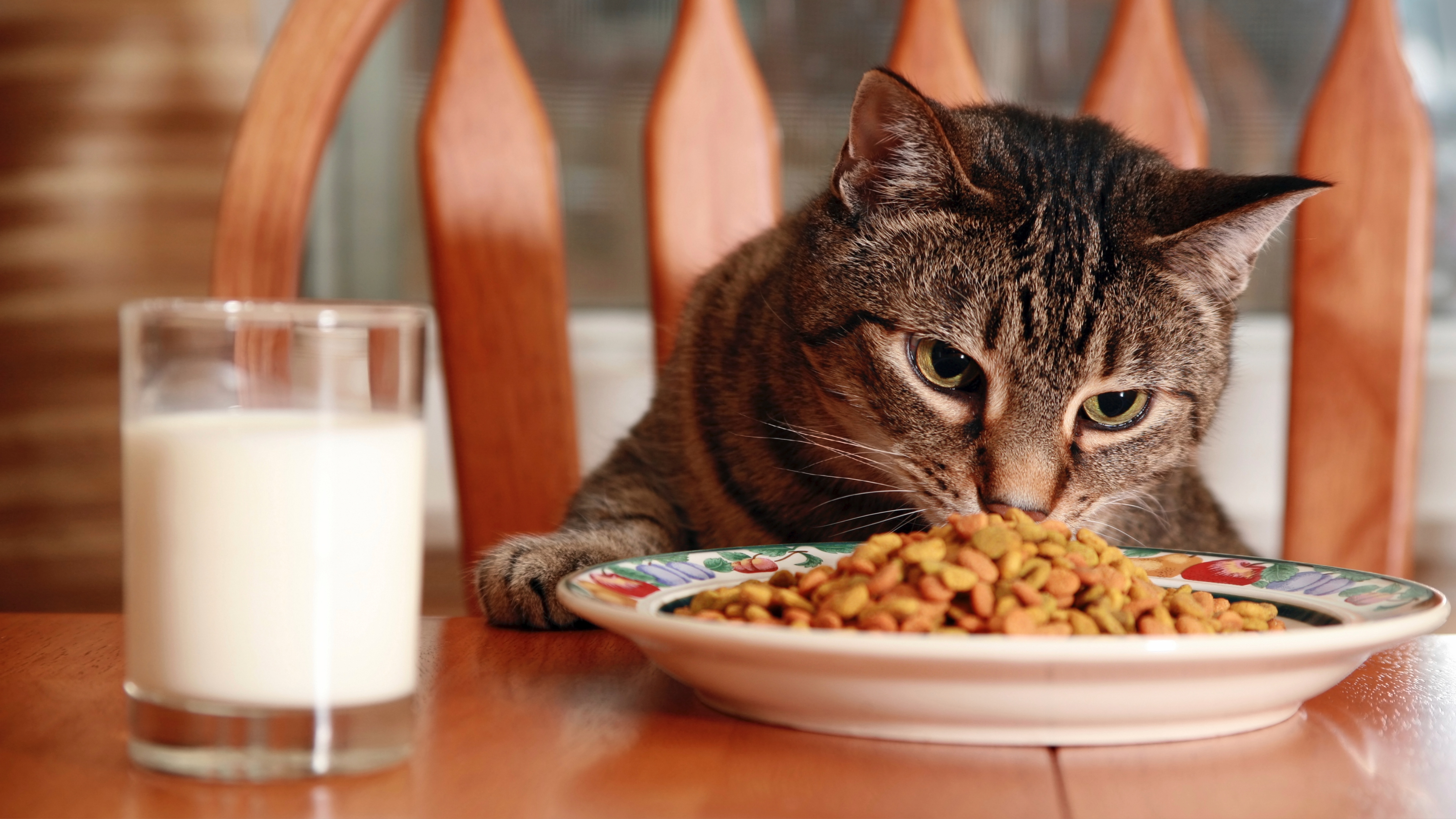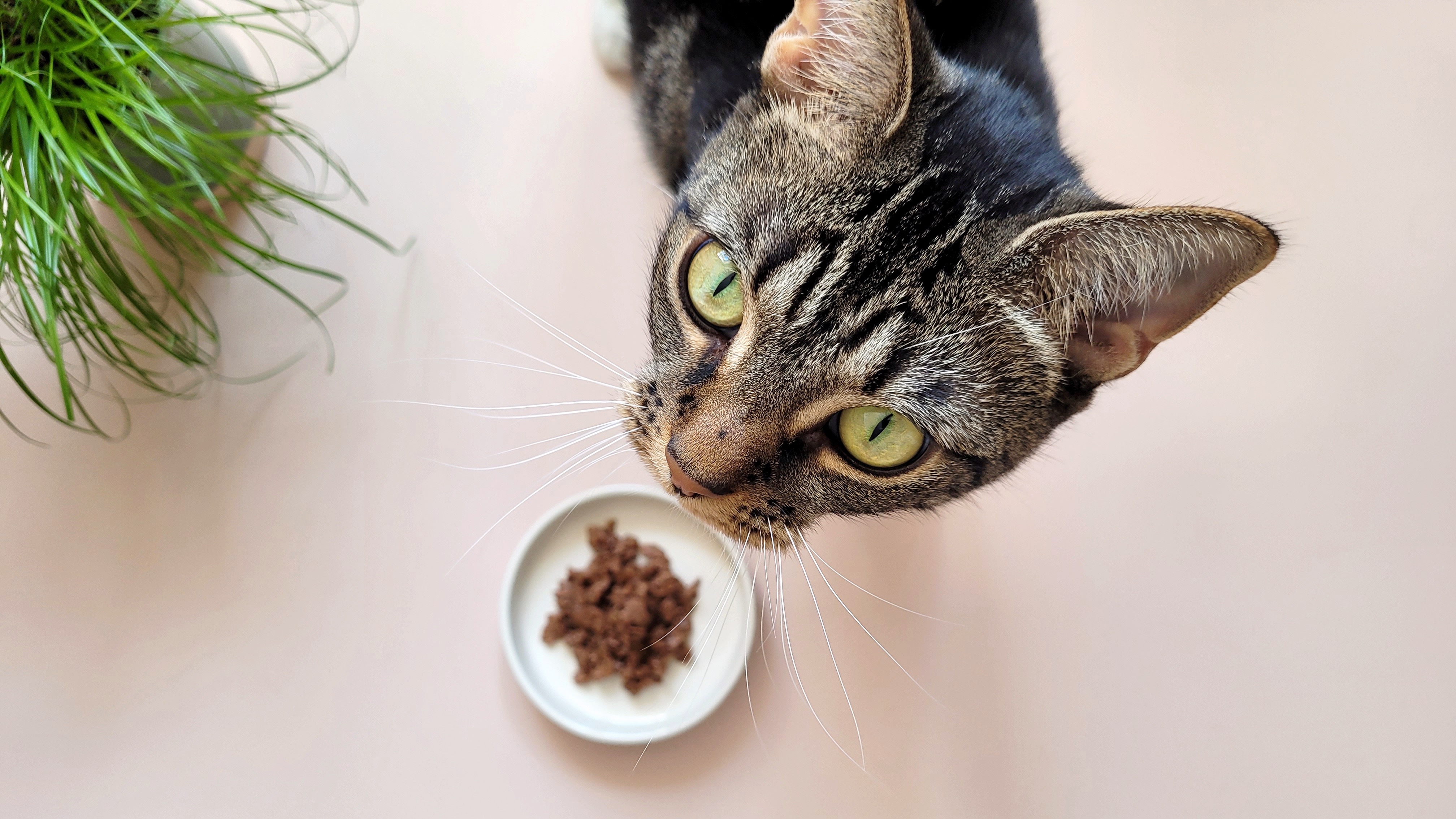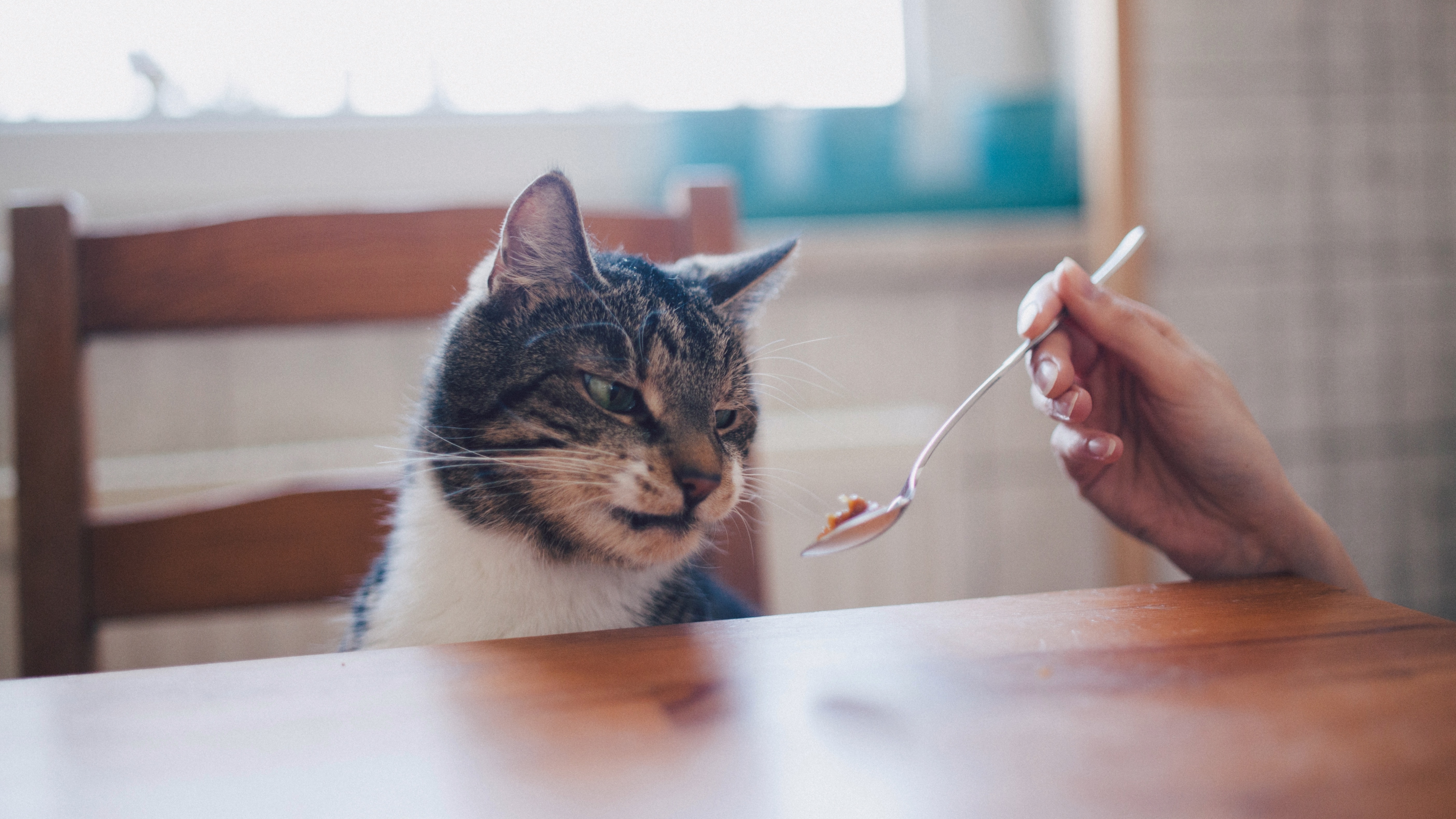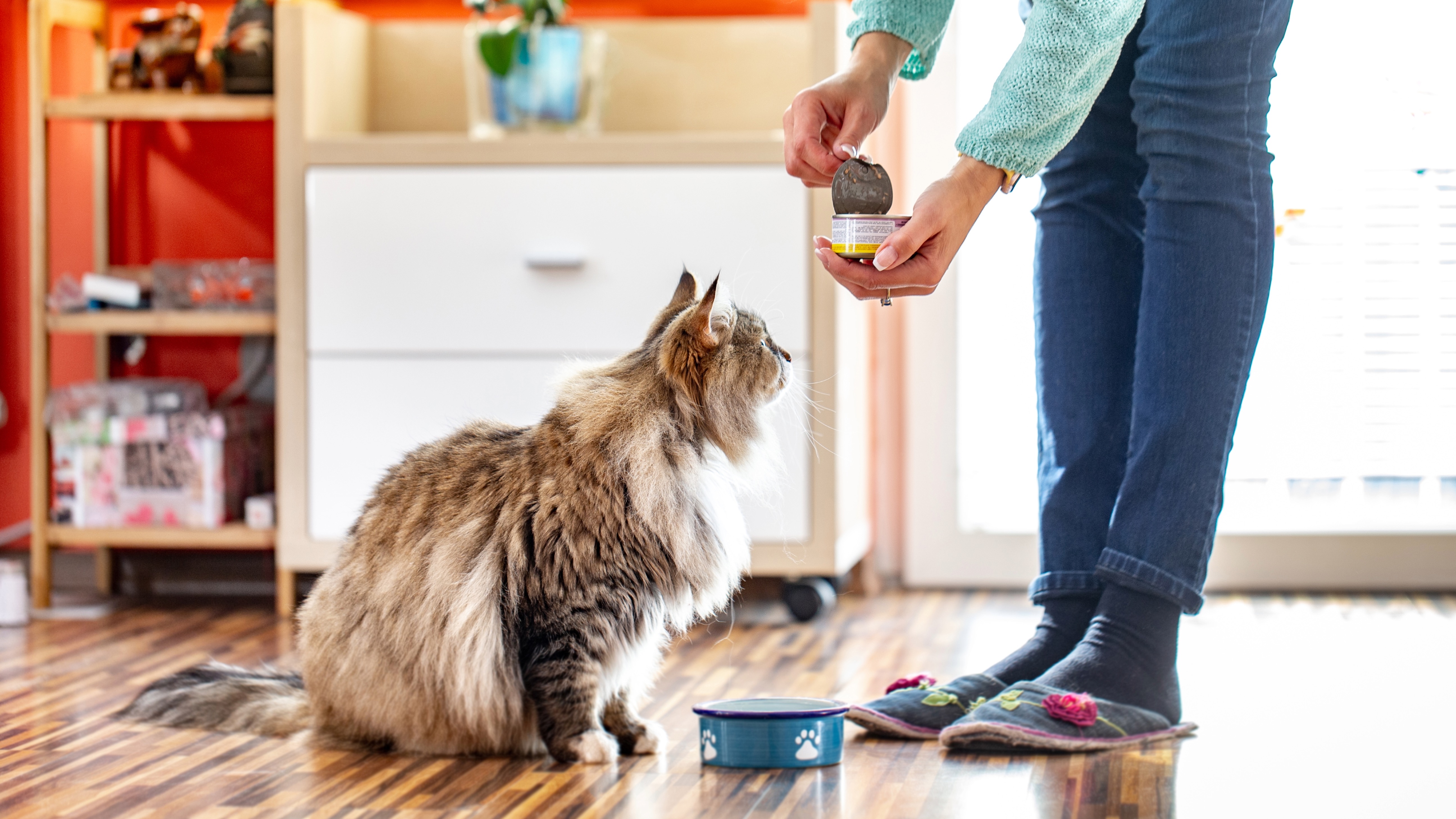
Is grain-free food better for cats? As a pet parent who likely wants their feline friend to live as long and healthy a life as possible, it's a question you may have found yourself pondering — especially given all the hype currently surrounding grain-free diets.
From the best dry cat food to the best wet cat food, trying to choose the right meal for your moggie can already feel like a minefield, but factor in whether or not it should be grain-free and the whole situation can feel downright overwhelming.
Thankfully, while it is important to select a complete and balanced food for your fur baby that's rich in nutrients, there's no scientific evidence to suggest that grain-free food offers our cats any benefits.
To help us understand more about this issue, we turned to expert vet Dr. Rebecca MacMillan. Below, she walks us through what grain-free cat food is and whether it could be a good choice for cats with sensitive stomachs. Plus, she reveals whether a grain-free diet poses any risks to the health of our feline friends.
What is grain-free cat food?
First things first. If you're anything like us, you've likely heard the term 'grain-free' floating around for the past decade or so. But what exactly is grain-free cat food and is it free from carbohydrates?
"Grain-free cat food literally means cat food that contains no grains," explains MacMillan. "Common grains found in normal cat food ingredients include rice, oats, barley, wheat, and corn."
However, as MacMillan goes on to point out, just because some of the best cat food you see lining the shelves is grain-free, it doesn't mean it's also carbohydrate-free.
"Manufacturers may instead use other ingredients such as potatoes, peas, sweet potatoes, beans, and lentils. This may mean that the meat content of a grain-free food is no different from a traditional cat food, it just contains a different carbohydrate source."
Is grain-free food better for cats?

Most of us who have a feline friend in our family are always on the lookout for ways to be the best cat owner. From gifting our kitties fun toys to play with to showering them with love and affection, giving them the best life we can is often at the top of our priority list.
And nowhere does this show up more than in their food bowl, where, let's face it — we often spoil them rotten! But with the cost of living crisis ongoing and designer diets often costing more than standard wet and dry food, does grain-free food actually offer our cats any benefits?
"There is no evidence that grain-free foods are any better for cats than normal diets," says MacMillan. "Many grain-free foods still rely on cheaper, plant-based ingredients such as legumes and pulses in addition to their meat ingredients.
If your cat has a digestive issue, rather than looking to grain-free foods, it is best to consult with your vet. They will want to rule out other health issues first, such as parasites or infectious diseases before considering doing a dietary trial. If your cat is properly diagnosed with a true food allergy, it is much more likely to be due to an animal-based protein than a plant-based one."
If your vet decides that an allergy is to blame for the symptoms your kitty is experiencing, you can have a chat to them about transitioning your feline friend over to one of the best cat foods for allergies.
Does grain-free cat food mean gluten free?
"Grain-free cat food is completely free from gluten," MacMillan confirms. "Gluten is a protein found in several types of cereal grains including wheat, barley, and rye. So, if the diet is free from grains, it will therefore also be free from gluten.
However, it is worth bearing in mind that there is no scientific evidence that cats suffer from gluten-related digestive disorders as humans do, so there is no proven need to eliminate it from their diets."
Is grain-free cat food good for cats with sensitive stomachs?

There are some things you only know if you're a cat owner and the potential for regular, upset stomachs is one of those things! While some of our fur friends have stomachs that seem to be made of steel, allowing them to eat anything and everything without any issue, others have more delicate digestive systems that can be easily thrown into distress.
If you have a cat throwing up food after eating, you might be wondering if a grain-free diet is the way to go. However, according to Dr. MacMillan, grain-free diets are unlikely to offer any relief to those kitties who suffer from sensitive stomachs.
"There is no evidence to suggest that it is the gluten or grains in pet food that cats are sensitive to," she explains. "In fact, most cats that suffer from true food allergies are allergic to common animal-based proteins such as chicken, fish, and beef, which are often found in grain-free foods.
For the majority of cats with no diagnosed allergies, the best types of food should be highly digestible and low residue. Speak to your vet for advice."
Are grain-free diets dangerous for cats?
"There is not enough research to tell us for sure what the long-term effects of feeding a grain-free diet to cats are," MacMillan explains.
"A potential link between dilated cardiomyopathy (DCM) and grain-free food has been found in dogs, and to a lesser degree in cats too. In DCM the muscle of the heart becomes weakened, leading to the heart becoming dilated and enlarged. This means it cannot pump blood around the body as effectively as a normal heart which, over time, can be fatal. This is thought to be due to the ingredients that replace grains, with many of these diets heavy in legumes or pulses such as peas or lentils."
However, at this stage, most vets would agree that there is not enough evidence around grain-free diets to offer a firm conclusion as to whether or not they pose any potential health risks to our feline friends.
If you'd like to feed your kitty a grain-free diet but have concerns over whether or not it will meet your cat's nutritional needs, we recommend you speak with your vet who will be able to offer you the appropriate advice and guidance.
Do cats need grain-free food?
According to MacMillan, the answer is absolutely not. Those in favor of grain-free diets tend to make the argument that cats in the wild eat a meat-based diet that's free from grains, but as she explains below, that doesn't mean that cats aren't able to digest these ingredients.
"Despite what you might read elsewhere online, cats do not need a grain-free diet. While they are obligate carnivores (requiring a high proportion of meat-based protein), carbohydrates still add valuable nutrition to their diets," she says.
"Cats are well adapted to processing ingredients derived from plants and will use them as a source of energy as well as benefiting from the vitamins and fiber they contain. Wild cats will eat the soft stomach of their prey, including its carbohydrate-based contents. This all means that pet food containing grains shouldn’t be viewed with undue suspicion."
Should you feed your cat a grain-free diet?

So, at the end of the day, should you feed your cat a grain-free diet or is a diet that includes grains perfectly healthy? Here's what MacMillan tells her clients:
"I don’t recommend grain-free food to my patients, as there is no scientific evidence to back this. Cats do not suffer from coeliac disease like people do, so avoiding gluten is not necessary. Furthermore, grains are an important source of nutrition for cats, and we don’t yet know the full extent of feeding grain-free diets to our pets long term."
Remember, if you're at all concerned your kitty may have an allergy, or you'd just like more advice around the pros and cons of grain-free diets, speak with your vet. They'll be able to give you their tips for feeding a cat properly and provide you with guidance on whether a grain-free diet may be worth exploring.
Looking for more great kitty content? If your cat won't eat dry food, here's what a vet said could be behind it.







